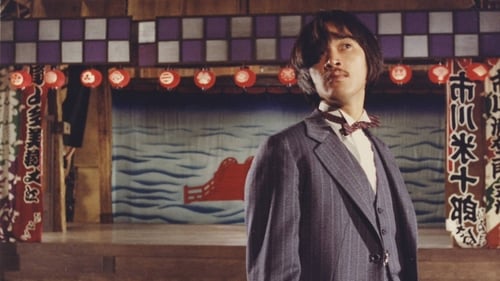
Director of Photography
Tóquio, 1926. Shunko Matsuzaki é um dramaturgo de teatro shinpa (moderno), e tem como mecenas o poderoso Tamawaki. Um dia, ele se depara com a bela Shinako numa ponte. Ela pede que Matsuzaki a acompanhe até o hospital para fazer uma visita a uma mulher moribunda. Ela deseja sua companhia pois tem medo de encontrar uma senhora vendedora de fisális, fruta que supostamente contém as almas das mulheres. Matsuzaki recusa, mas Shinako retorna em outras aparições, e torna-se sua amante. Em seguida, ela desaparece. Tempos depois, Matsuzaki descobre que Shinako pode ser o fantasma de uma antiga esposa de Tamawaki. Depois de receber uma carta de Shinako, Matsuzaki viaja para Kanazawa a fim de encontrá-la. No trem, ele encontra Tamawaki, que diz que está viajando para presenciar um suicídio por amor. Segundo filme da “trilogia Taisho,” que segue o mesmo estilo alucinatório do primeiro.
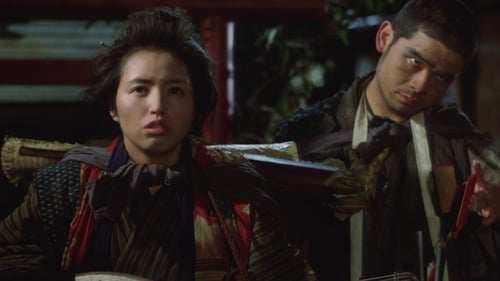
Director of Photography
Aochi, um professor universitário de alemão, encontra com seu antigo colega Nakasago quando viaja de férias para um vilarejo à beira-mar. Nakasago vive como nômade e é perseguido por um grupo local, acusado de ter seduzido e assassinado a mulher de um pescador. Depois que Aochi resolve a situação do amigo com a polícia, os dois jantam e conversam sobre a vida, acompanhados pela gueixa Koine. Seis meses depois, Aochi volta para visitar o amigo e descobre que ele está casado com Sono, uma mulher incrivelmente parecida com Koine. Repentinamente, Nakasago foge com Koine, abandonando Sono, que está grávida. Mas tudo pode ser sonho, delírio ou realidade. Acompanhando a trama, a peça musical “Zigeunerweisen” (1878), de Pablo de Sarasate, toca com insistência. Primeiro filme da “trilogia de Taisho,” que faz referência ao Japão dos anos 1910-1920, foi vencedor de quatro prêmios da Academia Japonesa em 1981, incluindo os de Melhor Filme e Melhor Diretor.
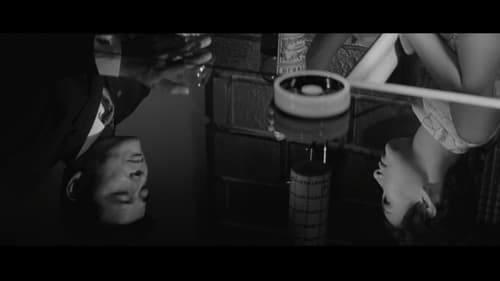
Director of Photography
Kuroda (Jô Shishido) is a mob hitman who turns on his employers after being forced to execute his lover. Joining forces with his similarly wronged brothers, hot-headed Eiji (Tatsuya Fuji) and aspiring boxer Saburô (Jirô Okazaki), the trio escalate their mob retaliation to all-out turf war where no one will stop until one faction emerges victorious.
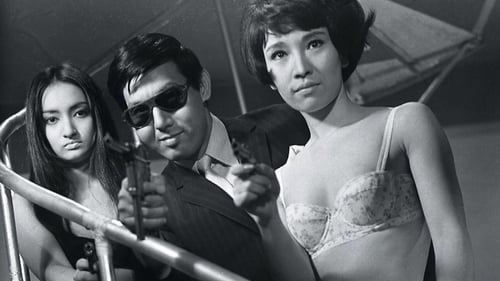
Director of Photography
Ao fim de quase quarenta filmes como realizador em pouco mais de dez anos de trabalho, Seijun Suzuki foi despedido da Nikkatsu, lendária produtora japonesa. A causa, este "Koroshi no Rakuin", considerado pela crítica a sua obra prima, mas visto como incompreensível e inaceitável pelo presidente da companhia, Kyusaku Hori. O filme valeu-lhe um circense processo judicial pela luta dos direitos das suas obras. Ao fim de três anos de litígio, Suzuki, mais do que uma vitória merecida, conquistou o estatuto de cineasta de culto no Japão e um despertar das atenções a Ocidente. A década seguinte seria de exílio em trabalhos menores para a televisão.

Director of Photography
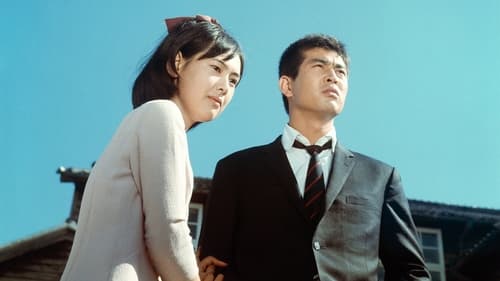
Cinematography
The film focuses on the romantic life of Tetsu (Watari), the drifter, and the girls he loves but can never quite bring himself to settle down with. To make matters even more atmospheric, our story is set in a picturesque harbor town. Yoshida is Tetsu's double-crossing rival who pays in the end with his life. Fairly superficial, but the tone isn't particularly light; in fact, it is downright melancholic, which is the picture's salvation. The emphasis on Tetsu never being able to escape his criminal life despite his tender side, the downbeat undercurrent of cynical gang activity amidst the sunset-dappled waves, actually makes this an entertaining sequel. However, Suzuki's irreverent surrealism is replaced by Morinaga's Monet-like impressionism.
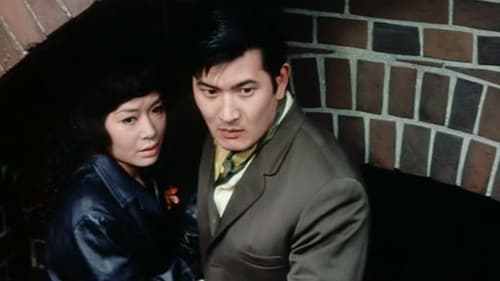
Director of Photography
Daisuke Honda, a war photographer in Vietnam, meets Yuriko Sawanouchi, a stewardess on his plane back to Japan. After drinking with her at a Tokyo bar, he becomes involved in saving Yuriko from assassination by stylish, female ninjas. When trying to rescue Yuriko from kidnappers, Daisuke discovers a group of foreigners are hunting for a WWII-era treasure hidden on an island by Yuriko's father.
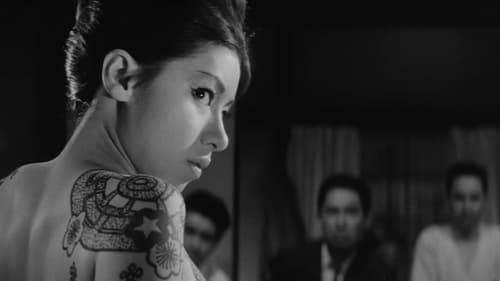
Cinematography
Mourning the death of her boyfriend, Yukiko wanders aimlessly from one city to another. During her mourning, she becomes addicted to gambling. One day, a man that resembles her deceased lover asks for help. He's being pursued by a dangerous gang of yakuza.

Director of Photography
When the mysterious “Joe of Spades” (Jo Shishido) executes one of the bosses of a powerful syndicate, his colleagues, fearing for their own lives, call on the services of assassin agency Murder Unincorporated to take care of the problem. This unique entry showcases some of the most peculiar killing tactics to ever hit Japanese cinema!

Director of Photography
A young man with a strong sense of justice is torn between two girls: the flighty Taneko and the serious Suzuko. With wisdom, courage and honor in a Japanese spirit of manliness he wins the day.

Director of Photography
Uma prostitua é humilhada por um alto oficial do exército japonês. Ela resolve se vingar se relacionando com seu assistente, para manchar a honra do superior hierárquico.
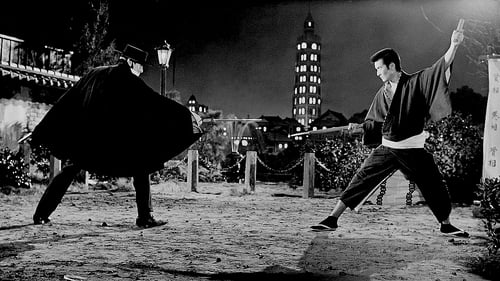
Director of Photography
A young yakuza in love with the girl who's to marry his clan oyabun, kidnaps the girl before fleeing with her. In Tokyo, he hides under the identity of a worker while the young woman becomes a waitress in a restaurant.

Director of Photography
One summer day, the chief monk of the Hojuin Temple dies. Harumichi rushes back to town hearing about his brother's death and requests for a grand funeral. He had been unwilling to take over the family business and had chosen a life as a middle school teacher far away from home, but considering the circumstances, he changes his mind. As the new chief of Hojuin, Harumichi scrambles around day after day for donations. He has kept strictly to the straight and narrow, until he passes a bicycle race track where the sounds of cheering fans induce him into a new way of life...

Director of Photography
When a mysterious stranger muscles into two rival yakuza gangs, Tokyo's underworld explodes with violence.

Cinematography
Joji Dan tries to find the heir of a prosperous Japanese millionaire who died in Mexico. However, the bandits want to take over the inheritance and Joji has to use his skills as a fast and accurate shooter!
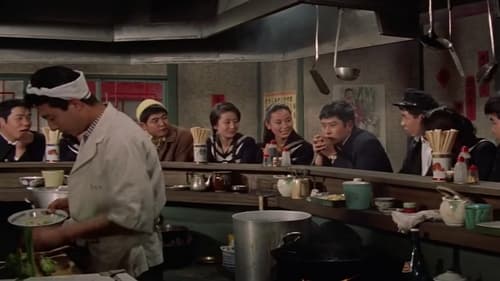
Director of Photography
Wada Kōji is a chivalrous young man who leads a group of youths that take on a yakuza boss.
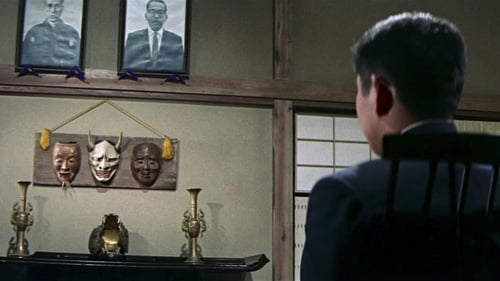
Cinematography
A college student takes over the family business in the field of organised crime.

Director of Photography
This rarely seen gem from master Suzuki casts teenage heartthrob Koji Wada as a young misfit who suddenly finds himself the unwitting pawn in an escalating family feud that ultimately leads to tragedy. Lean, mean, and stylish as always, this tale of youth-gone-wild is both vibrant and touching. Suzuki contrasts tranquil glimpses of traditional regional life with the emergence of the new rock 'n' roll youth culture and the greed and seething cynicism of encroaching Westernism. Also released under the title "Go To Hell, Hoodlums!", this is a melodrama as colorful, shocking, and exhilarating as one would come to expect from Japan's master filmmaker.

Director of Photography
A youth film starring Kōji Wada and Mayumi Shimizu

Director of Photography
Sadao, is saved from death at the hands of Goro, a killer belonging to a rival gang by Joji just released from prison who has resolved to turn over a new leaf. He has returned, however, because of Keiko, his sweetheart, who he now finds is engaged to Noboru, a detective and son of Jinsaku, boss of the Otsu gang. That night at the night club, headquarters of the Highlight Group - which Noboru is investigating, Majima meets Joji who knows of his attempt to kill Jinsaku, and resolves to kill him.

Director of Photography
When Ryuji - the Gun Slinger, a drug addict leaves hospital to which he was taken after a gunfight by a notorious killer named Gin of Colt, he is employed as a bodyguard by Yo Sangen, chief of a narcotics smuggling ring.

Director of Photography

Director of Photography
A jazz bandleader, falsely accused of murdering his girlfriend, tries to stay one step ahead of the police as he dives into Tokyo's sin-city in search of the real killer in this dark and beautiful noir from master Seijun Suzuki.

Cinematography
A tense action game that skillfully intertwines the human love between a criminal, his sister and his lover, and the desperate pursuit of a detective who is trying to catch a fleeing young criminal.
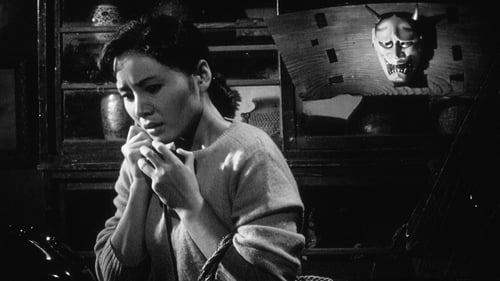
Director of Photography
Asako, a former telephone operator once heard the voice of a murder suspect which has continued to haunt her. Years later her husband invites his boss, Hamazaki, over for dinner and she realises his voice is suspiciously like that of the killer. Before she can investigate further, Hamazaki is found dead and her husband becomes the prime suspect.

Director of Photography
A delinquent young man (Kobayashi Akira) from a wealthy family decides to get in on a blackmailing scheme targeting his young stepmother (Watanabe Misako). However, he doesn't realize that his fellow blackmailers have their eyes on his girlfriend next.

Director of Photography
A bus making its precarious way across a winding mountain road picks up some unwelcome passengers.

Director of Photography
A conflict between two yakuza families in Tokyo, the Izus and the Yoshidas, has recently broken out. When an Izu underling starts a fight with a Yoshida man, Fuyu, the Izu family sends Tsuruta, a senior member of the clan, to make a personal apology to Fuyu. Tsuruta discovers that the woman he is in love with is Fuyu's sister, Tatsuko. Tsuruta ends up gambling with a swindler, who is in fact Tatsuko's husband. (The general plot of the film was re-used for Seijun Suzuki's Kanto Wanderer).

Director of Photography
The first postwar war movie depicting the tragedy of a special force that shook the world at the end of the Pacific War, with thrill and speed

Director of Photography
A yakuza boss and his right-hand, Hawasaki, escape from prison. the film concentrates on their relationship, emphasizing loyalty and thier eventual betrayal, enroute they get involved in money trafficking, a cop killing and horse racing scams before the inevitable tragic ending. A patch-work production.

Director of Photography
Um conto de aventura romântica sobre um jovem que trabalha em um navio baleeiro e seu amor por uma paixão da infância.

Cinematography

Director of Photography
A remake of High Noon (1952) as a Japanese jidai-geki sword-fighting movie.

Director of Photography
Japanese film.

Cinematography

Director of Photography
Ebihara is a budding novelist entangled in a complicated web of relationships with three women from three different generations: Kazue, a coquettish teenage war orphan who tries to offer herself for money but is instead taken in by Ebihara, Koyabu, a middle-aged woman who has spent much of her life as the kept woman of a wealthy man, and Teruko, the modest daughter of Ebihara's former teacher who comes to rely on him after the death of her father.

Cinematography

Cinematography
Film about poet Ishikawa Takuboku



























